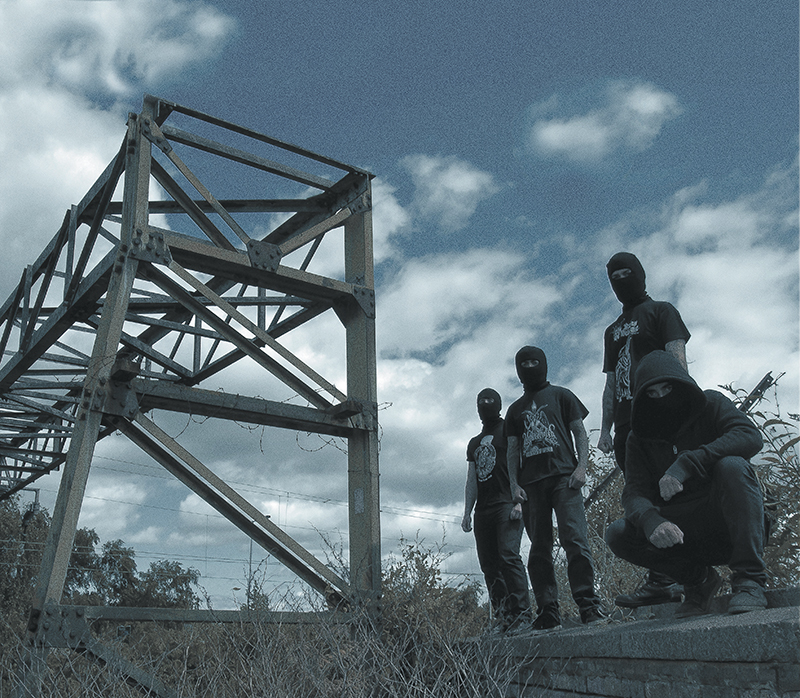
Volcanic Birth: Interview with Dragged Into Sunlight
Music Interviews
SLUG: DIS, in a lot of circles, have received the genre label as death/black doom, which I hear elements of, mainly on the first album. But the attitude of the music versus the traditional connotations that come with that genre/label may contradict each other. There’s always the necessity for people to put a label on things. Did DIS set out with a particular set of influences to create you music? Did you endeavor to play this genre or amalgam of genres?
DIS: Dragged Into Sunlight had no aims or ambition other than creating sounds that we wanted to create, and we felt, as fans of extreme music, that someone needed to do it. Extreme music was starting to feel diluted at the time and routine for many bands, with each subsequent record sounding the same as the first. We began playing to the walls, and it may be that Dragged Into Sunlight ends playing to the walls. If so, at least we had a great time doing it.
SLUG: I honestly feel from the first record forward, with the extreme elements, it felt like there was a lot of noise influencing the sound as well as some maybe sort of crust, grinding elements. To me it’s more reflective of music outside typical realms of what most people call “metal.” What are your thoughts about this assessment?
DIS: Each involved in Dragged Into Sunlight grew up listening to a wide variety or music, and all of those bands continue to influence us to some extent. That is certainly the case so far as crust and grindcore go. Nostromo, Amebix, Doom, Tragedy, Discordance Axis and Agoraphobic Nosebleed are among our influences, as well as underground bands like Horse Bastard and Magpyes, so you would be right to recognize those elements, as there are certain genres that underpin fundamental parts of the sound that Dragged Into Sunlight creates.
SLUG: Your first album, Hatred for Mankind, compared to Widowmaker, is vastly different. It seems like you came out early with a heavily angry attitude, pissed-off, noisy aggressive-sounding. With Widowmaker, things are still aggressive but it feels like the record is more meant to be a one-piece listening experience—listeners can’t just expect to hop in mid-track and expect to get the full experience, they need to hear the entire piece to understand it. What brought about the change in sound from the first record to the last?
DIS: We don’t think about each record sequentially. Both are different heads to the same beast. Each overemphasizes particular themes and, where Hatred For Mankind focused on aggression, Widowmaker focused on themes of isolation. Whereas Hatred For Mankind felt like a frenzied and schizophrenic hammer attack, Widowmaker was minimalist and felt like the weight of the world dropping on top of you.
It is important that those who opt to listen to the music that we create appreciate Dragged Into Sunlight for what it is; the collective experimentation and manipulation of sound. No artist wants to paint the same picture twice, and Dragged Into Sunlight does not seek to recreate the same recording twice. You can certainly distinguish Hatred For Mankind from Widowmaker with relative ease, and the same with NV. Whilst it is an approach which may cause confusion, Dragged Into Sunlight is and will remain a selfish endeavour.
SLUG: You like to use samples from serial killers or murderers talking about what they did. Some bands use those more in a way to make things seem gory or grim. You seem to use them, I feel, as an addition to your atmosphere; they don’t come across as morose, but more a showcase of the darkness inside humanity. Why do you choose to use the samples?
DIS: Mainly, for the reasons you describe. There is a stark realization in exposing the relentless darkness of humanity.
SLUG: Most of us would never harm a human being unless they defending ourselves. The question is, your music is dark and harsh, but the band’s name is Dragged into Sunlight. Is there perhaps any implicit meaning that you want to show your audience the darkness of humanity with hope that they may metaphorically see the light of humanity?
DIS: In contemporary society, it takes a lot to see or justify any positives among a swelling void of negativity. You don’t just have people killing nowadays—you have people competing for the highest numbers, politicians facilitating murder and authorities complicit in covering their tracks. An audience doesn’t need music to see that or even a TV. Step outside. It is fucked.
Volcanic Birth: Interview with Dragged Into Sunlight
Page Three >>>